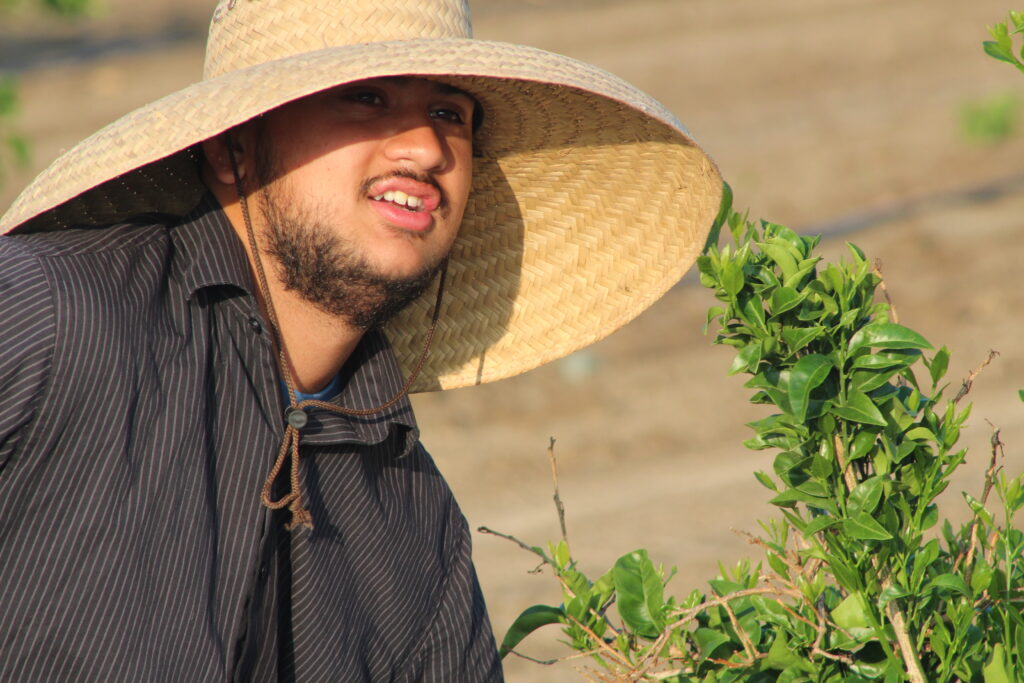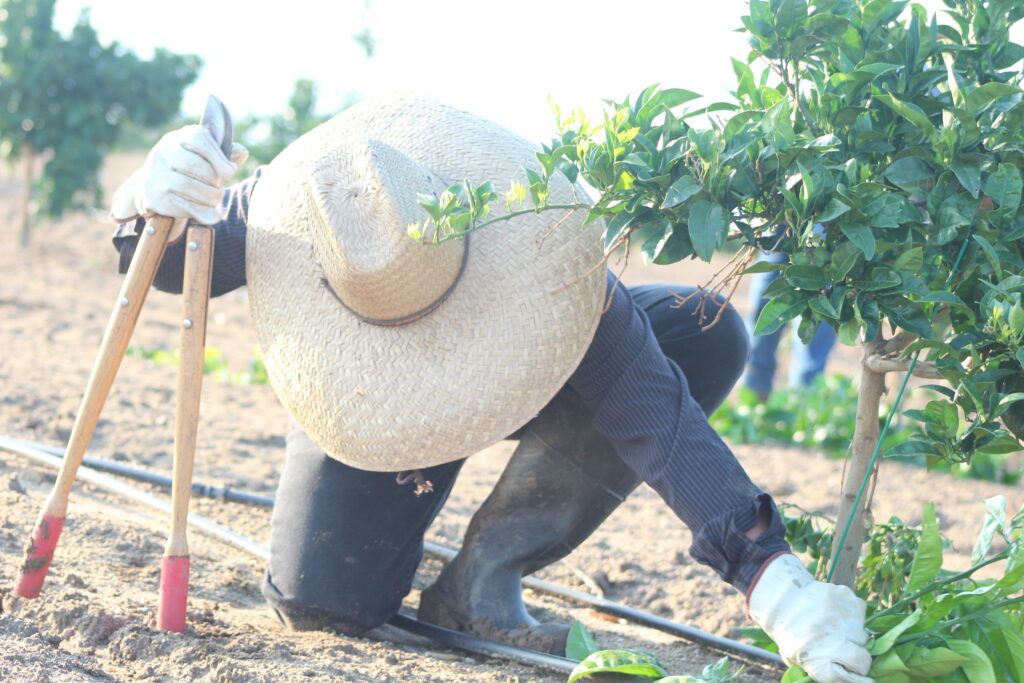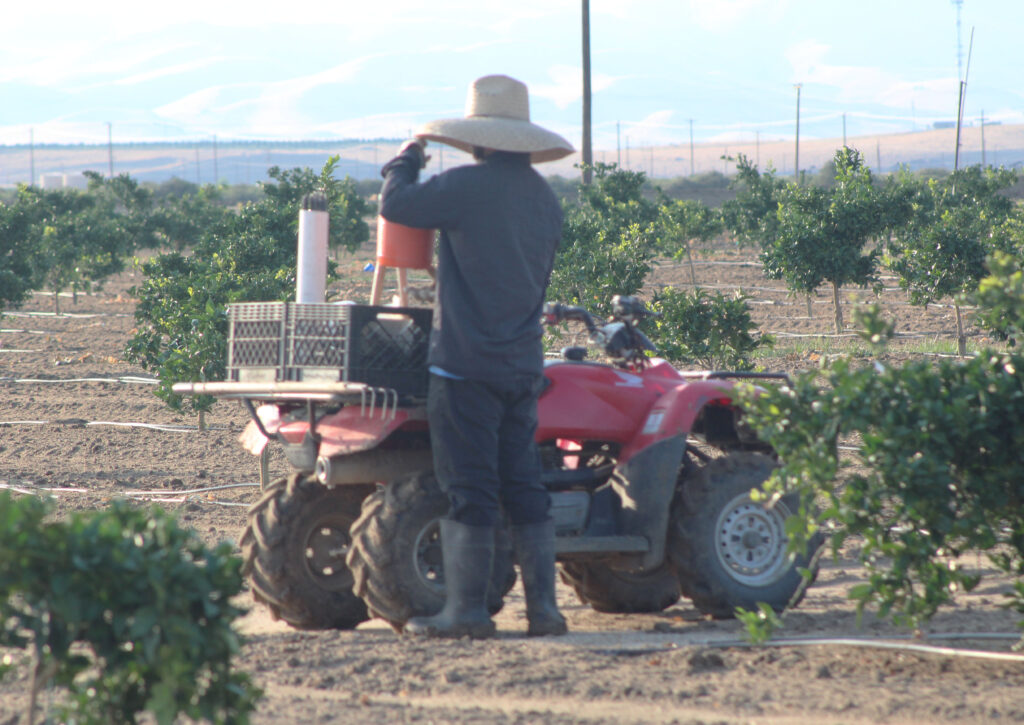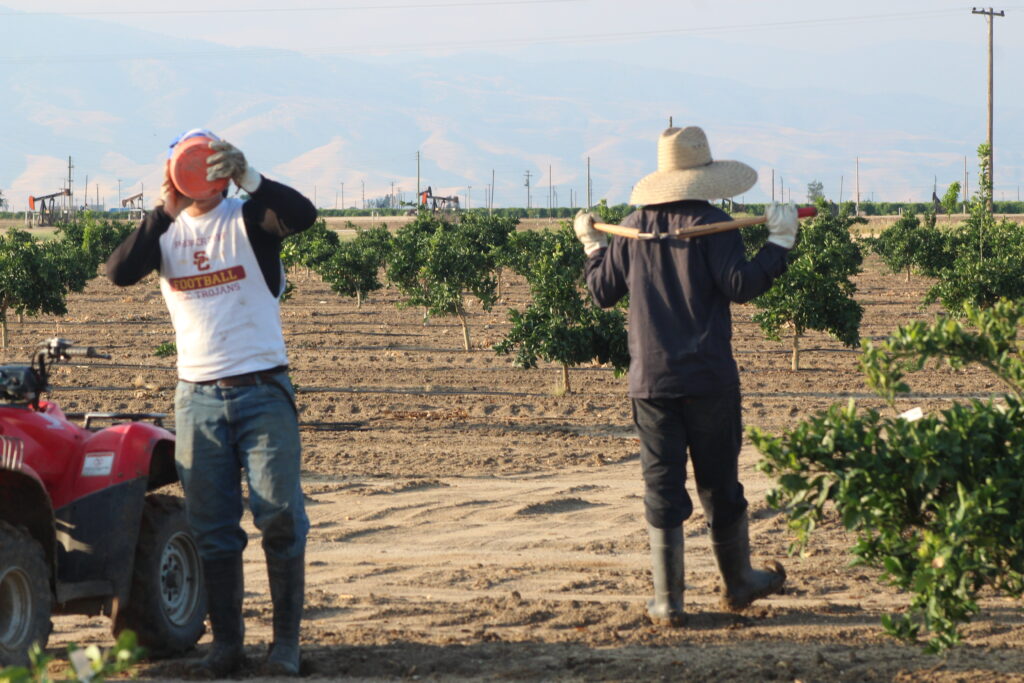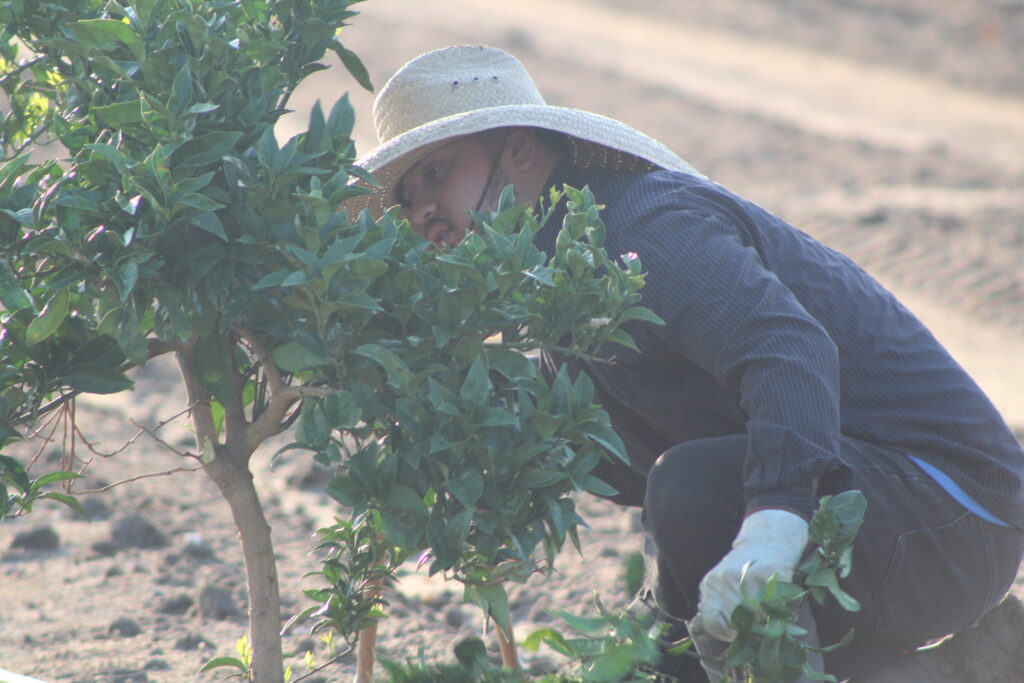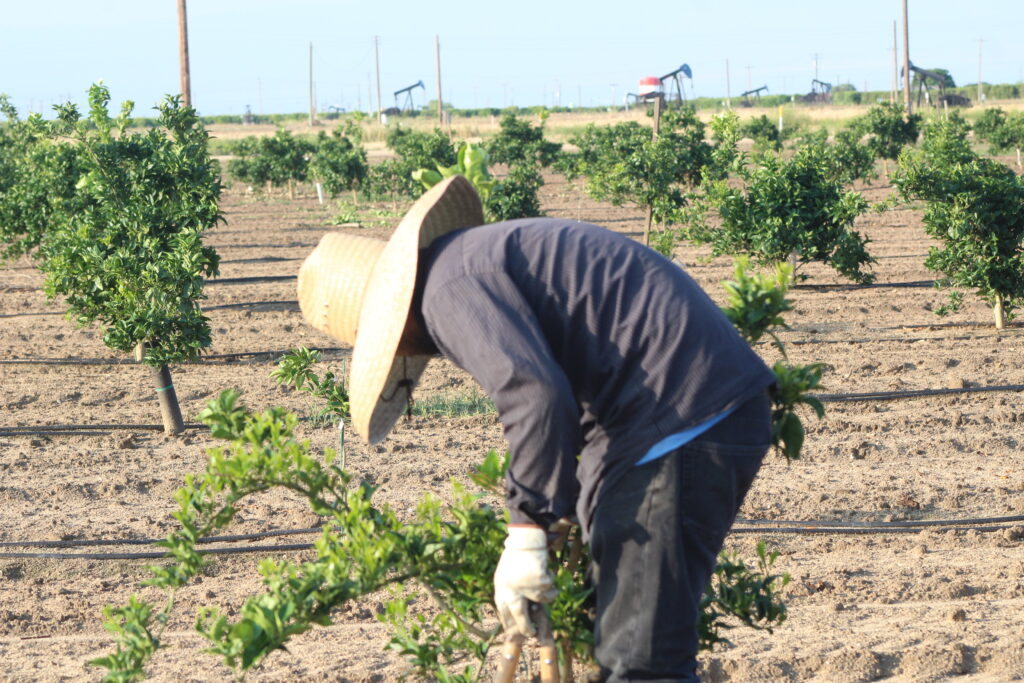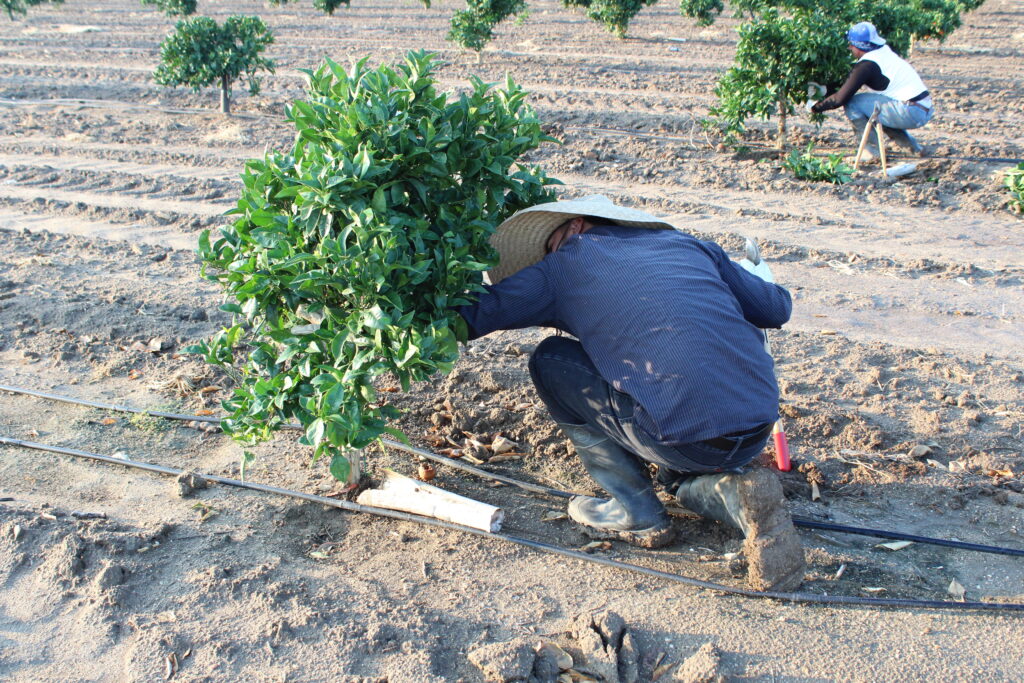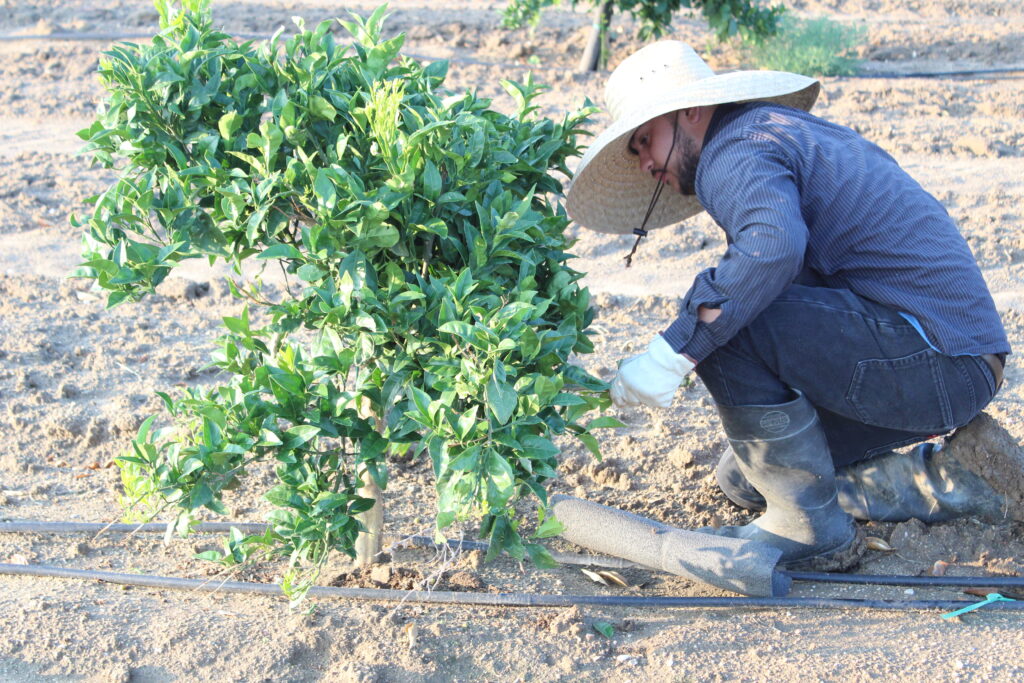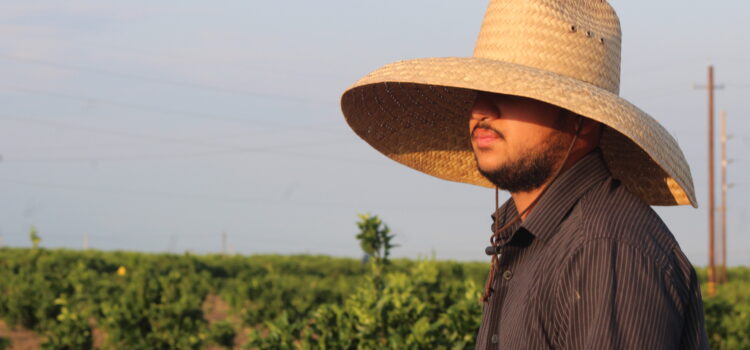
Photos by Lizette Chavez
Carlito’s feet sank a foot into the mud as he hummed along to Trap music over the repeated snapping of branches. The sun beat down and Carlito’s eyes filled with salty sweat. He rubbed his eyes with his well-worn gloves, keeping one hand on the tree, continuing the rhythmic crack, crack, crack of the branches.
He arrived at the orange groves at 6 a.m. after waking up two hours earlier to make the 45-minute drive to work. He stopped once to pick up his 17-year-old cousin before arriving at the orchard, where his father, brother, and grandfather were waiting for him in the sweltering heat.
Carlito stayed in the fields for hours, taking few breaks for water and the occasional snack. After six hours of work, he was sent home due to extreme temperatures. He would only be paid for half of the day’s labor.
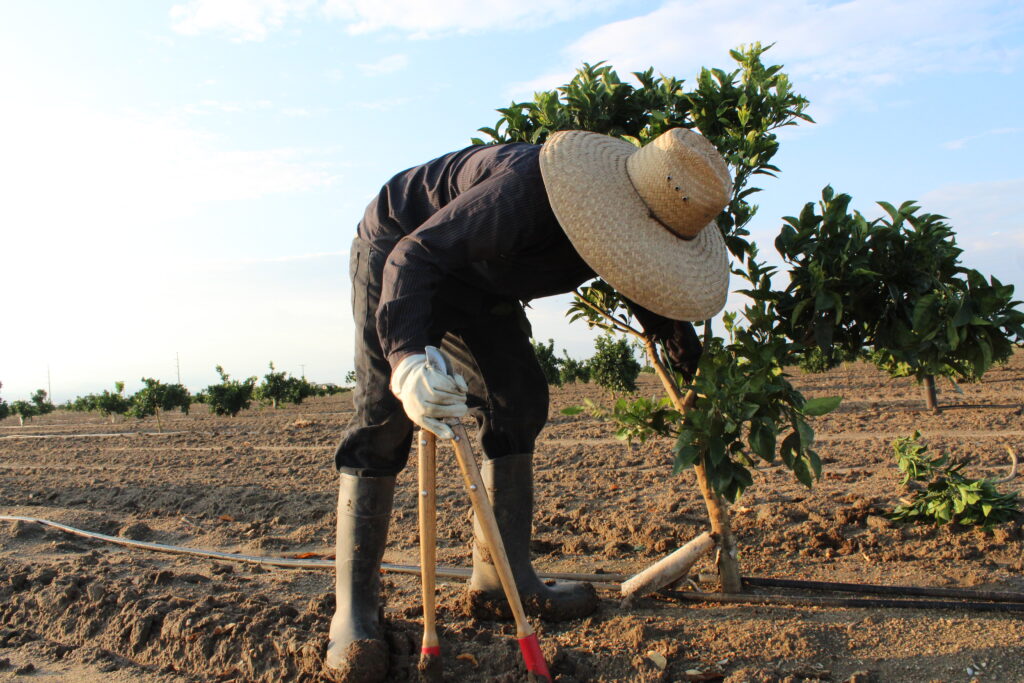
PHOTO BY LIZETTE CHAVEZ
Drenched in mud and muscles aching, he drove home exhausted and flung himself into bed unshowered.
“I don’t really mind it,” Carlito shrugged. “It’s just what I have to do.”
Carlito, a 16-year-old high school student, says he is just one of hundreds of Kern High School District students who work in the fields to help support their struggling families.
For Carlito’s family, fieldwork is an unstable but necessary form of income. Carlito’s jobs take him to fields scattered across the outskirts of the city, with different companies overseeing the fields. Some days, he has shade, water, and toilets readily available. Other days, he may not have those necessities.
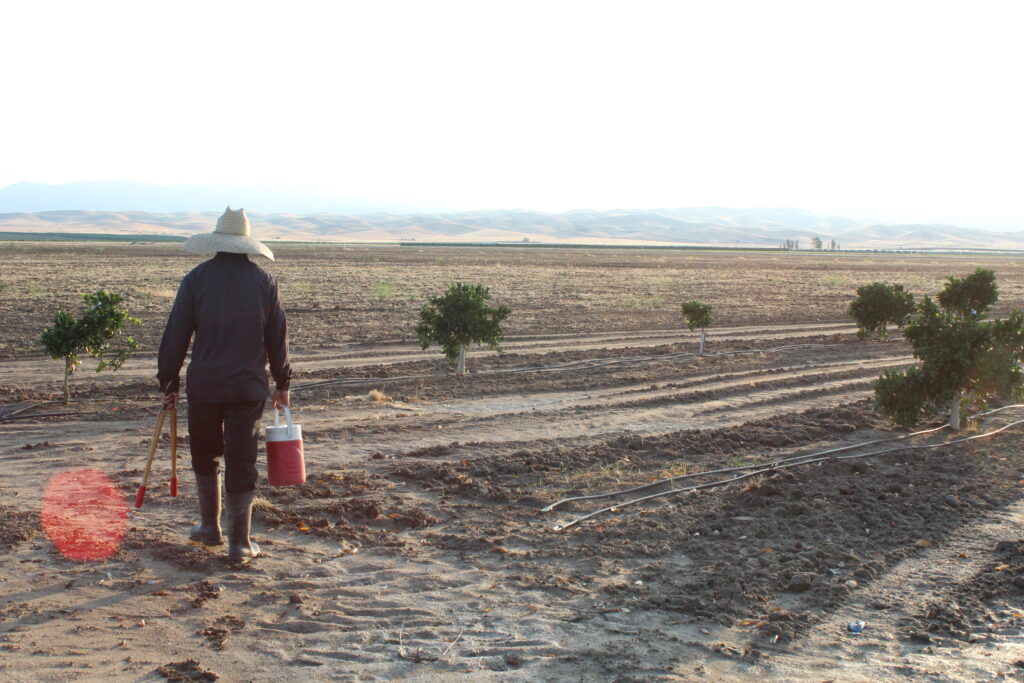
PHOTO BY LIZETTE CHAVEZ
Most of his family members have worked in the fields and steady pay isn’t guaranteed.
“It depends on the weather,” Carlito’s mother, Cassandra, said. “If it’s too hot, you lose part of your pay for the day. If it rains, they could send you home. You never know if they’re going to cut workers or if the weather will be right.”
Carlito first began working at 15 years old, as soon as he could get a work permit. Some of his peers, however, began working in the fields as young as 13.
Cassandra said farm work is common among Carlito’s classmates. Carlito works alongside teenagers his age during the school year.
“[Fieldwork] is incredibly easy to get into,” Cassandra said, “especially during the summers. During the grape season, the fields are full of teenagers. At least half of the workers are high school students.”
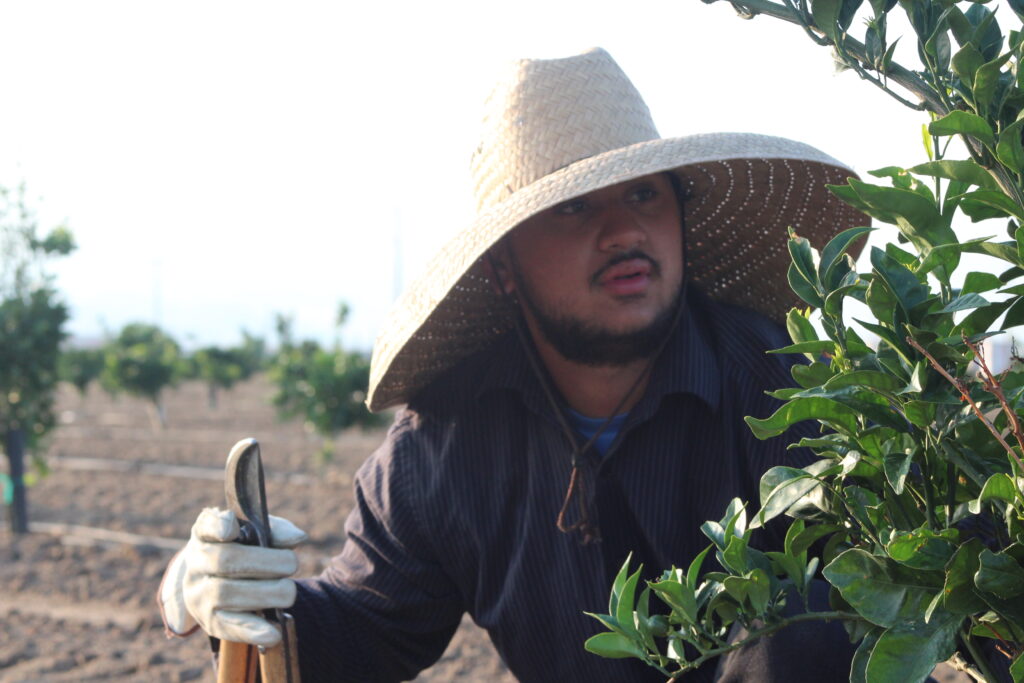
PHOTO BY LIZETTE CHAVEZ
Carlito’s own cousin, a junior in high school, left traditional school in favor of independent study so he could work in the fields year-round.
On a typical day, Carlito and his cousin make around $72 each.
To many, minors working in the fields is an unseemly sight. After all, minors are the most vulnerable to high temperatures and heat sickness, and they are only dismissed from working if the temperature rises to 104 degrees.
“But, I will say the working conditions have improved since the Occupational Safety and Health Administration (OSHA) implemented new rules,” Cassandra said.
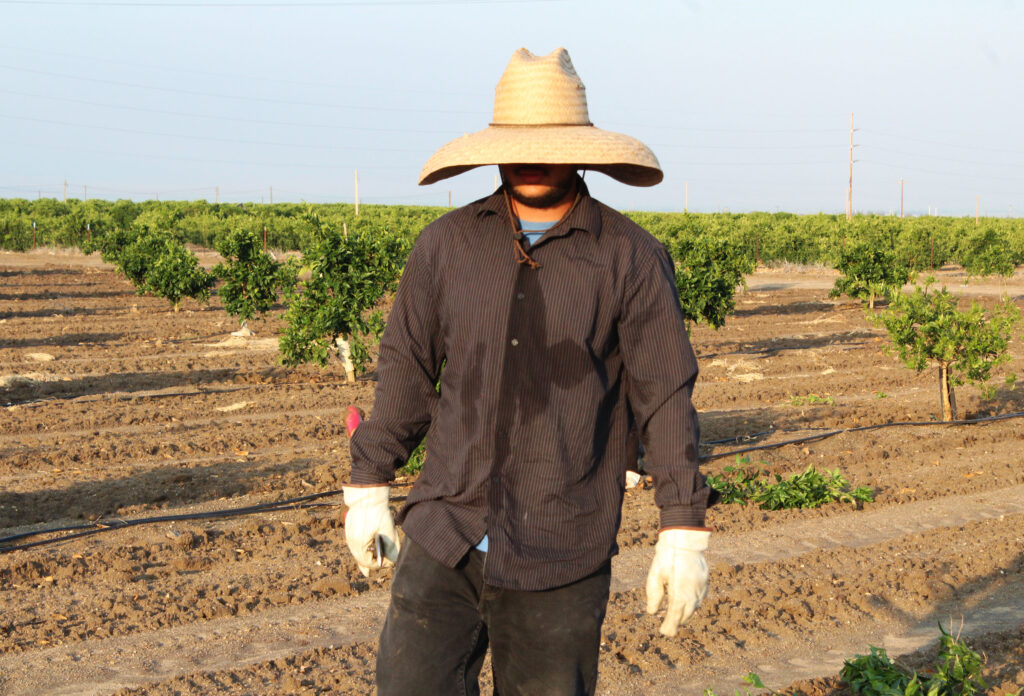
PHOTO BY LIZETTE CHAVEZ
These laws require that adequate shade and water be provided to workers in order to prevent heat sickness, among other accommodations.
But not all workplaces follow OSHA guidelines, Cassandra said.
“There are some places that don’t provide shade or water still,” Cassandra said. “But, the places we’ve worked at have had good working conditions.”
The field Carlito visited to prune orange trees did not provide shade, water, or bathrooms within walking distance. Carlito and other field hands brought their own water and supplies.
That concern dwarfs when compared to Cassandra’s bigger worry: pesticide exposure. While Carlito said he can’t see or smell any pesticides, his mother maintains that it takes hours to wash the smell of chemicals out of his clothes after just one day of work.
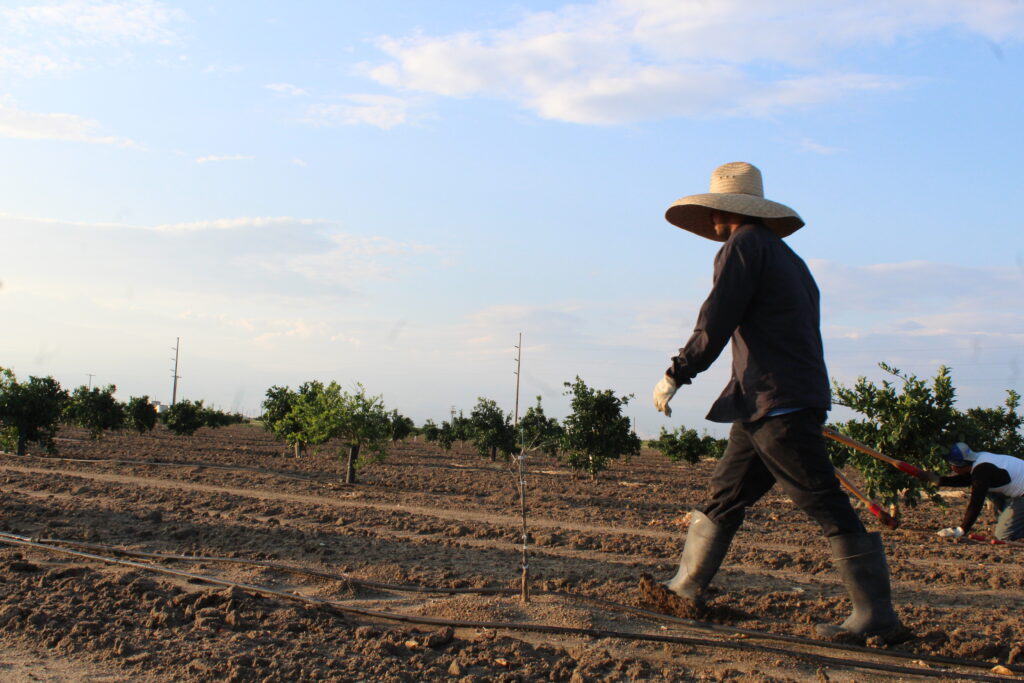
PHOTO BY LIZETTE CHAVEZ
According to the National Resource Defense Council, children and minors are disproportionately affected by pesticides. In a similar report by the American Academy of Pediatrics, minors were found to have a “unique susceptibility” to them.
Research has shown such exposures can increase the incidence of cancer and behavioral health challenges.
Despite his mother’s fears, Carlito is willing to work and support his family, even though the job is difficult.
Carlito and his mother find the instability of fieldwork to be a source of financial anxiety, even if it’s used as a form of supplemental income.
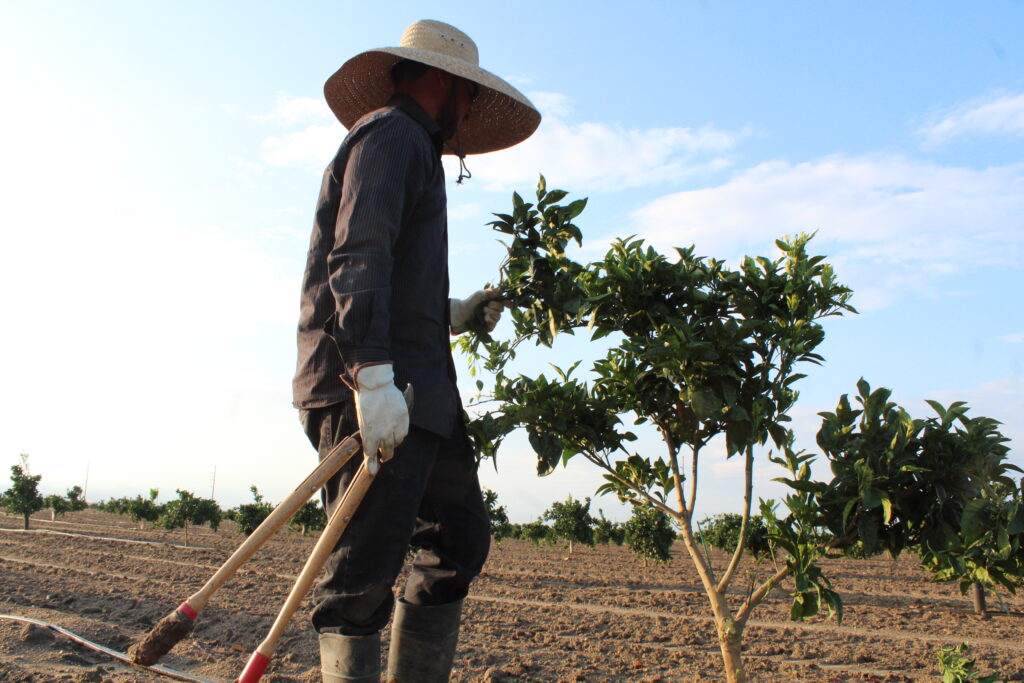
“I’m not even sure if I’ll have work all summer,” Carlito said. “There may not be jobs open for me, and the days might be shorter because of the heat.”
During the school year, he works tirelessly on weekends, with just one day to recuperate before returning to his classes. In the face of regular and repeated manual labor, Carlito has maintained passing grades. Each school day, he comes to class prepared and excited to learn about world history and dreading his English courses.
To Carlito, fieldwork is not an end but a beginning. He is applying for jobs at local restaurants and fast-food chains. He’s eager to enter a new workforce — one with less physical demands and steadier pay.
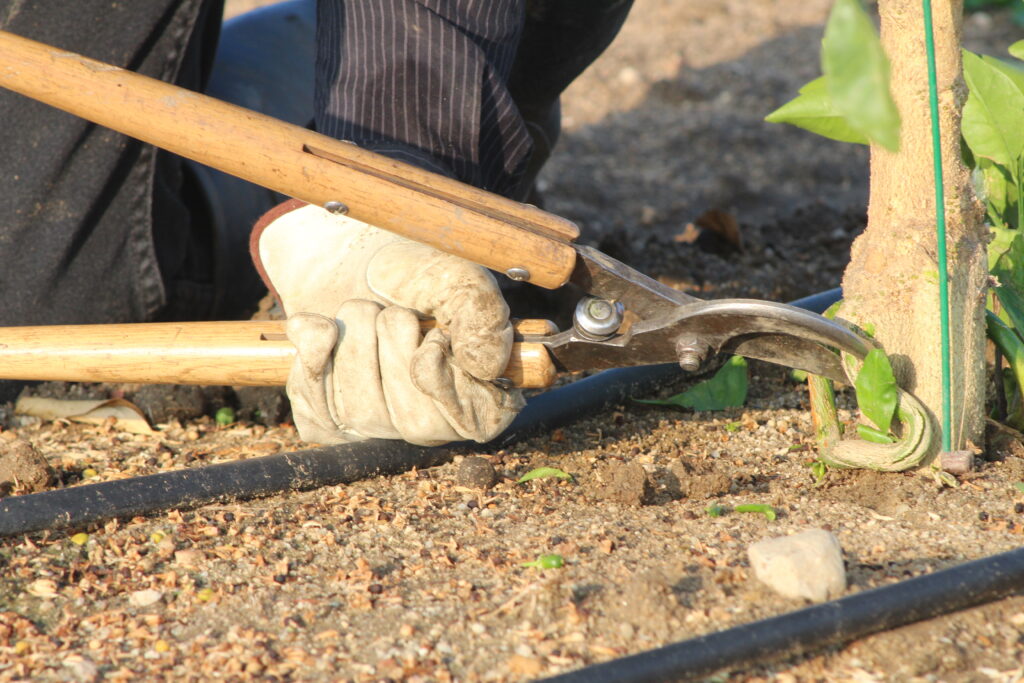
PHOTO BY LIZETTE CHAVEZ
“My goal is to become a mechanic and an electrician,” Carlito said. “That’s what I’m working for.”
While Carlito searches for a less physically demanding job, he continues to work in the fields. His back aches and his muscles are fatigued, but he continues to look ahead to a more stable life.
This story was made possible with a grant from California Humanities, in partnership with the Bakersfield College Foundation and Virginia and Alfred Harrell Foundation.
South Kern Sol is a youth-led journalism organization in Kern County. In their stories, reporters shine light on health and racial disparities in under-served communities across Kern. For more stories by South Kern Sol, head to southkernsol.org.
